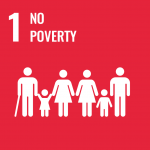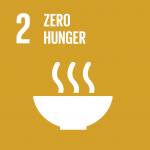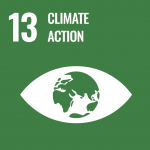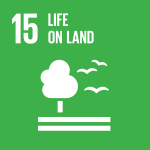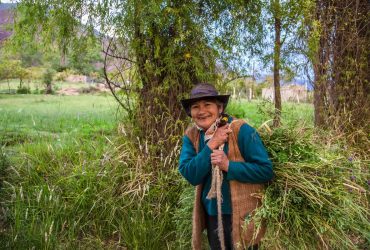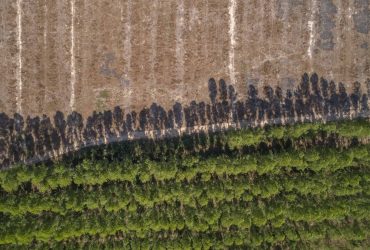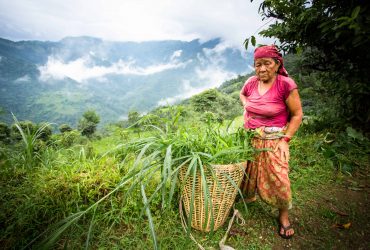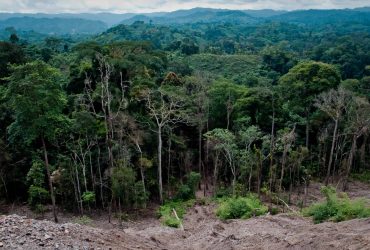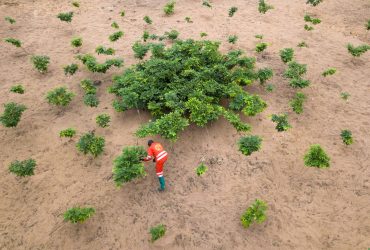


In December, 2021, Colombia enacted a Climate Action Law, which reaffirmed Colombia’s goal of reducing deforestation by 51 percent by 2030 and carbon neutrality by 2050. This includes reaching net zero deforestation by 2030. The law mandates key REDD+ policies and incentives and directs 50 percent of the carbon tax funds towards efforts to halt deforestation. In addition, the law promotes the involvement of the private sector in mitigation actions, including through zero-deforestation agreements, public-private partnerships, and carbon markets. The general election process led to a change in government in Colombia, and thus a process of elaboration of new government priorities began. The foundation document for the 2022-2026 National Development Plan (NDP) proposes a renewed emphasis on total peace and key transformations that will have important implications on forests and climate change, such as land planning, community rights and sustainable rural development. In this context, support from the program focused on the consolidation of key areas, as well as on providing inputs to facilitate the transition.
Forest Solutions Realized: The new government is proposing a plan to halt deforestation building on REDD+ strategy in nine active hotspots and promoting sustainable forest management. In addition, the fire prevention and management and forest restoration plans will be updated and implemented. In terms of climate change, the foundations of the NDP propose a review of the implementation plan to meet the country’s NDC. It also establishes forest protection as one of the pillars. A number of policy instruments and incentives are also included in law, which includes provisions to transition to deforestation-free agriculture, minimizing risks of livestock impacts on forests, and conservation agreements to stabilize the agriculture frontier.
UN-REDD continued to provide technical advice to expand the scope of the monitoring system. The main topics supported were restoration monitoring and sustainability of the forests monitoring system. An evaluation of the efficiency of conservation agreement (CA) actions and community forestry (CF) projects and initiatives was developed within the framework of the project. The results were positive, and recommendations for improvement were submitted to MinAmbiente.
With UN-REDD support, including via knowledge management, a stream of work on deforestation-free production and trade was initiated based on lessons from similar pioneer work in neighboring Ecuador. This paved the way for a broader engagement in 2023, including the potential expansion into Colombia of the UNDP-Lavazza Partnership for Deforestation Free Coffee, which is developing and testing policy-based, pilot schemes for production, certification and trade of deforestation-free commodities, engaging international companies along the way, and connecting them with farmer cooperatives on the ground.
Forest Solutions Rewarded: A key milestone for the country was the launch of the GCF Visión Amazonía “Payment for Results REDD+ Colombia 2015-2016” project. The project will be executed by FAO, in close coordination with MinAmbiente, the Institute of Hydrology, Meteorology and Environmental Studies (IDEAM) and Indigenous and peasant communities of the Colombian Amazon. This will accelerate actions in the pillars of forest economy and governance in Indigenous territories of the Amazon Vision Program, in the departments of Amazonas, Caquetá, Guainía, Guaviare, Putumayo and Vaupés.
In relation to carbon markets, legal provisions also incorporate registration requirements for projects and initiatives, including those aspiring to receive payments for results. As part of the efforts to maximize the potential of carbon markets, the law established a commission for the study of carbon markets in Colombia, which will release recommendations for the regulation and administration of such markets.
As a result of multi-stakeholder dialogues, the need to assess the implementation of the National Strategy and CONPES 4021 on deforestation control was identified, as well as a need to design a participation and communication plan that allows for the strengthening of institutional coordination. This will guarantee access to information on REDD+ and carbon markets, and continue strengthening the management, regulation and control instruments that allow results based on the greatest environmental and socio-cultural integrity.
Forest Solutions Enhanced: In the framework of the implementation of Colombia’s REDD+ RBP project, FAO has facilitated two discussion spaces between Colombia’s national government and the Mesa Regional Amazónica (MRA) as a guarantee of due process of Prior Consultation to Programa Visión Amazonía. In this context, FAO has provided information related to its Indigenous Peoples Policy and its guidelines for FPIC.
As part of the efforts to create policy pathways for forest conservation, 46 conservation agreements were evaluated, representing 573,619 hectares under agreements with 43,788 active participants. In addition, eighteen community forestry projects were also assessed and evaluated, resulting in recommendations for the design, monitoring and evaluation of CA and CF programs and projects in Colombia.
With each change of government, there is the challenge of maintaining long-term efforts adapting to national priorities. UN-REDD contributed to this process by providing information and relevant knowledge, anchoring its support around implementation of the Comprehensive Strategy for the Control of Deforestation and Forest Management (EICDGB) of the new National Development Plan. To this end, UN-REDD promoted spaces for training and dialogue at a technical and political level, aiming to improve coordination within the Ministry of the Environment and other responsible entities, as well as a more significant appropriation of the national strategy in the forestry tables, the nodes of climate change, and the instances of participation of Indigenous peoples and local communities.
The emerging conflicts around voluntary markets show the need to strengthen the National Registry of Remissions (RENARE) and its relationship with the regulations of the safeguards, as well as to develop capacities for the nesting of REDD+ actions, considering the roles of the different actors that come together in the territories that must work together to transform the causes of deforestation and forest degradation.
UN-REDD continued to support the Permanent Bureau for Dialogue with Indigenous Peoples, which comprised three major policy areas: biodiversity & climate, indigenous territories & peace, and autonomy and governance. This support included information sharing, capacity building, dialogue facilitation and promoting gender equality. The flagship event took place on August 9, 2022, within the framework of the commemoration of the international day of Indigenous peoples. UN-REDD facilitated a high-level dialogue between seven national Indigenous organizations, the President of Colombia and various ministers, as well as representatives of the United Nations. This space reinvigorated the dialogue process.
UN-REDD continued to support the environmental agenda with Indigenous peoples at the national level and the information and consultation processes of the National Development Plan, the Amazon Vision Program and the regulation of Payment for Environmental Services in Indigenous territories.
Colombia MADS is implementing, together with FAO as AE and technical agency, the REDD+ RBP project recognising results for the years 2015-2016. This project was granted by the GCF for a total of $28.2 million. The project, currently in full implementation, is strengthening national and local capacities to monitor and control deforestation, while enhancing sustainable management of forest areas, territorial governance and capacities of Indigenous peoples to manage and preserve forests. UN-REDD technical assistance is leveraging the established and important partnership with the project.
UNDP has implemented a partnership with the Territory Renewal Agency (ART) and the Ministry of Environment and Sustainable Development (MADS) for the NaturalPaz(Naturaleza para la Paz) project, which aims to contribute to the construction of sustained peace and prevent new socio-environmental conflicts through investments in green businesses that contribute to climate action, strengthening the capacities of rural communities settled in sites of high biological and cultural diversity. Through the UN-REDD TA, the project is expected to collect the intervention models and lessons learned from REDD+ initiatives in communities with public and private stakeholders.
The Climate Promise Initiative, implemented by UNDP, has begun a second phase, financed by the UK’s Ministry of Environment, Food and Rural Affairs (DEFRA), to strengthen and accelerate the implementation of Colombia’s NDC. Together with the Ministry of Environment and Sustainable Development, the Organization of Indigenous Peoples of the Colombian Amazon (OPIAC) and the National Commission of Indigenous Women (CNMI), an open call for proposals has been launched to support and finance Indigenous actions that contribute to the implementation of the country’s climate and environmental agreements, focusing on the most vulnerable and excluded territories and populations.
The SDGs directly related to the control of deforestation and sustainable forest management are: SDG 1, 2, 13 and 15.
